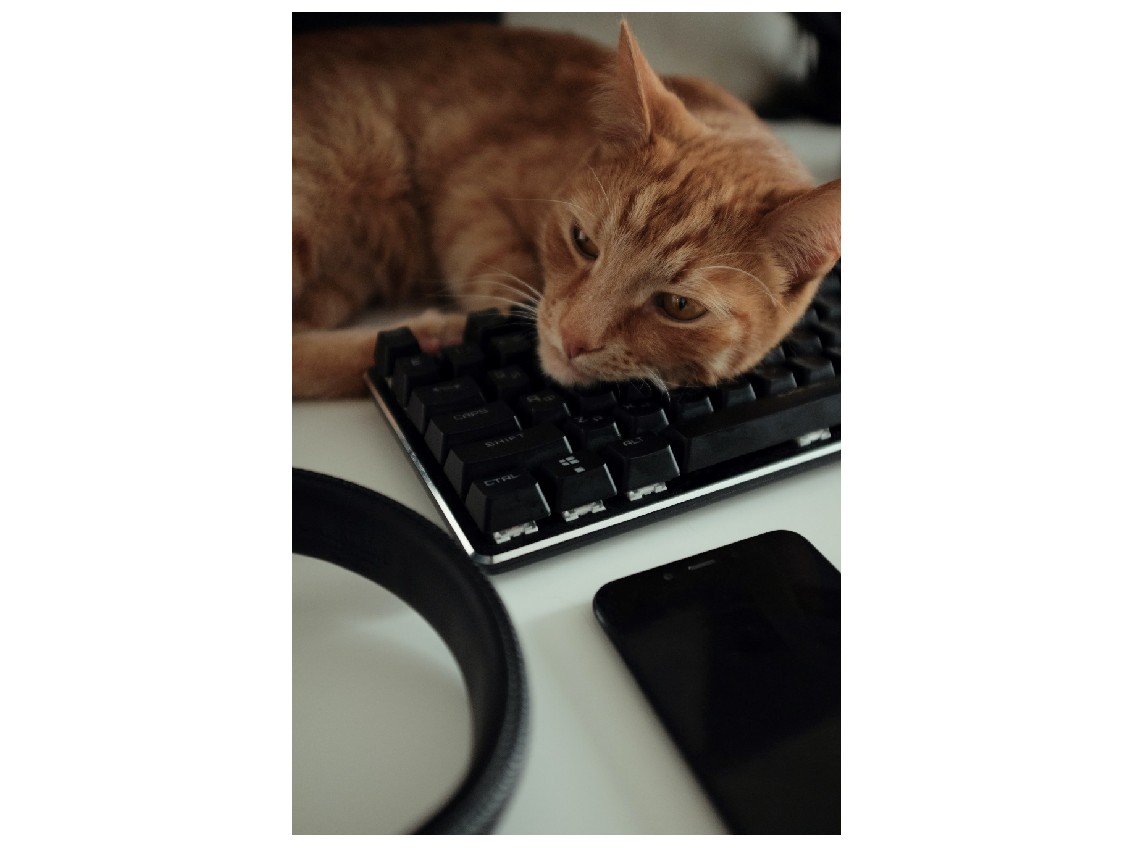
If you’re anything like me, you may have a list as long as your arm of Things To Get Done. It never seems to get any shorter. In addition to that, there always seems to be 100 other (not on the list) things crying out for our attention, especially when some or all of the things on the List are not our favourite things to do. You have to be very stern with yourself to put aside a pleasant dalliance with the distractions and get on with the task at hand.
There are always multiple distractions in a workplace, and it can be hard to stay focused throughout the day. It’s tough at the best of times. Even if you and your family are physical, mentally and financially OK, things are still rather challenging, and I especially feel for the working parents of young children.
Distractions come in all shapes and sizes. The phone buzzing. The arrival of an email, IMS or social media alert. Comings and goings in your vicinity. Yells from the children. The arrival of the cat or dog in your home office. Ominous crashes. Someone hanging round you for a chat. Displacement activities.
In one survey of 35,000 leaders from thousands of companies across more than 100 countries, 73% of leaders reported feeling distracted from the task at hand either “some” or “most” of the time.
The biggest distractions are:
- demands of other people (26%)
- conflicting priorities (25%)
- general distractions (13%)
- too heavy a workload (12%).
If you want to get more done without hassle, you have to learn to manage the distractions. The ability to apply a calm, clear focus to the right tasks — at the right time, in the right way — is the key.
There is a direct correlation between a person’s focus level and their career advancement. Most successful senior managers have an above-average ability to focus.
Research shows patterns to focus and distraction. If you understand your pattern it will help you understand how you should plan your day.
Notice and log when your focus rises and falls for the next couple of weeks. What times of day are you best able to concentrate? When do you find your focus wavering? Most people’s focus peaks in the morning and dips to its lowest after lunch. The pattern varies from person to person, so identify your pattern and use it to plan your day.
Use your focus pattern to best advantage. Plan your most important activities and meetings at the times when your focus is strongest. Carry out lower-priority items when your focus is weakest.
What distractions do you have to deal with? What tends to derail you? How can you best avoid them?
Achieving good focus is dependent on physical and mental factors too. Some are good for your focus, others are not. The most obvious is sleep; if you are sleep-deprived your focus and judgment suffers. Lifestyle activities, for example, exercise and the type of food you eat, significantly impacts your ability to stay focused. Taking short breaks in the working day can help you increase your focus. Get up and move for ten minutes every hour. Get some water, do a physical task. As well as stretching your muscles, moving around helps oxygen come into the brain and body. Just going outside for a brisk 20-minute walk can help you re-focus.
Contrary to what many people believe, coffee is not useful for your focus. Caffeine might suppress drowsiness but undermines your focus. Avoid alcohol as it completely undermines focus (goes without saying really).
Your mental states also impact on your ability to focus properly. Negative emotions generally decrease it. If you get annoyed, it is hard to focus on anything other than what annoyed you.
Positive emotions generally have the opposite effect, enhancing and opening your focus to see the bigger picture.
With training and planning you can improve your focus and sustain it for much longer during the working day.
***
If you’re an employer with HR queries and problems, get in touch!
Sign up for our free resources and free weekly tip - subscribe here.
Phone 0345 644 8955
LinkedIn Russell HR Consulting
DISCLAIMER
Although every effort has been made to ensure the accuracy of the information contained in this blog, nothing herein should be construed as giving advice and no responsibility will be taken for inaccuracies or errors.
Copyright © 2021 all rights reserved. You may copy or distribute this blog as long as this copyright notice and full information about contacting the author are attached. The author is Kate Russell of Russell HR Consulting Ltd.
Latest blog posts
- Is There a Santa Clause?
06 / 12 / 2023
- Lend Us a Hand!
22 / 11 / 2023
- What Happens When There is a Clash in Protected Characteristics?
17 / 10 / 2023
- Encouraging a Healthy Workforce 2
21 / 09 / 2023
- Encouraging a Healthy Workforce
23 / 08 / 2023
- What a Disaster - (But We Have a Cunning Plan!)
20 / 07 / 2023
- It’s Time We Stiffened the Sinews
14 / 06 / 2023
- Why Is It So Important to Develop Emotional Resilience?
16 / 05 / 2023
- When is a discretionary bonus not discretionary?
20 / 04 / 2023
- Recovering Training Costs 15 / 03 / 2023
